Managing rental properties effectively requires the right tools, especially when it comes to collecting rent.
The evolving landscape of property management offers a range of digital solutions to streamline the payment process, providing both ease and security for landlords and tenants.
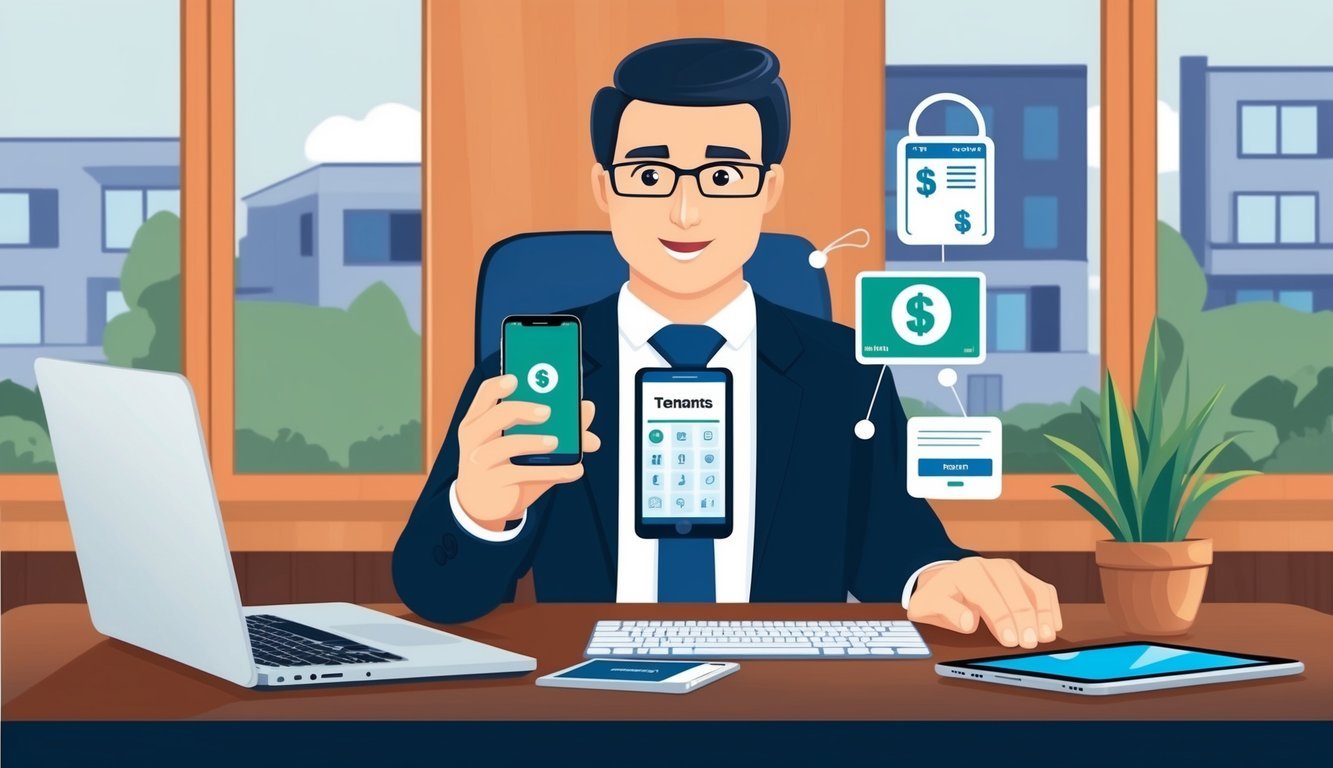
Staying informed about these technological advancements is crucial for property managers looking to enhance their efficiency and tenant satisfaction. By leveraging the best available tools, you can simplify your operations, reduce potential delays, and ensure a smooth rental experience for everyone involved.
1) Buildium
Buildium stands out as a versatile property management software tailored for property managers and real estate professionals.
Its platform simplifies rent collection, offering a streamlined approach to handling payments.
With its cloud-based system, Buildium allows you to track transactions and manage financial records with ease.
Tenants can pay online, reducing the hassle of processing paper checks.
Buildium’s interface is user-friendly, ensuring you can navigate through its various features without difficulty.
It provides tools for tenant screening, lease tracking, and maintenance request management, ensuring all your tasks are kept in one place.
The software offers different pricing tiers.
The Essential plan covers core functionalities starting at $55 per month, which includes access to a property management website and tenant screening capabilities.
Opt for the Growth plan at $174 per month if you need additional features such as unlimited e-signatures and detailed performance analytics.
The ability to customize reports and communicate effectively with tenants adds further value.
By managing your properties with Buildium, you can focus more on growing your business rather than getting bogged down by administrative tasks.
Explore more about Buildium at this Property Management Software link.
2) TenantCloud
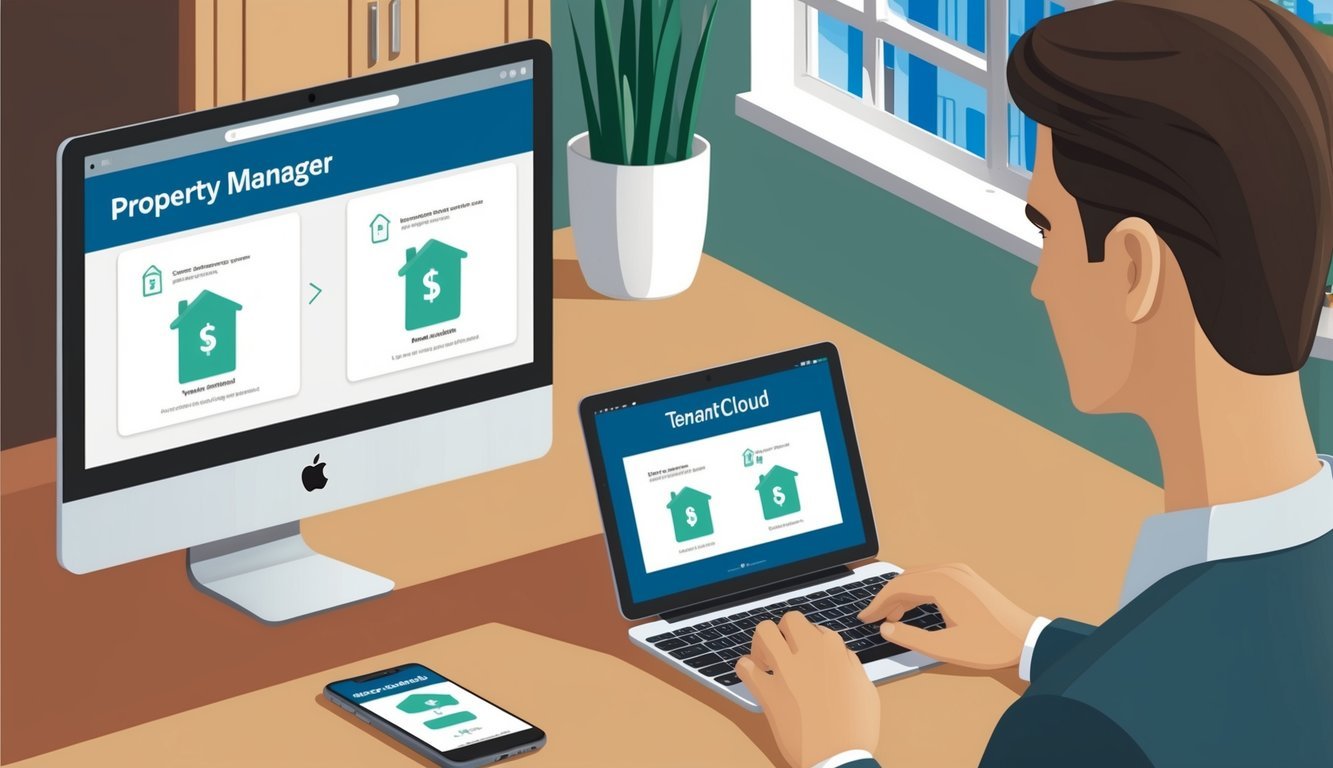
TenantCloud is an invaluable tool for property managers looking to streamline their operations.
It offers an all-in-one platform where you can manage various tasks like administrative duties and marketing your rental properties.
You can find that having everything in one place significantly simplifies property management.
With TenantCloud, posting property listings becomes a breeze, and you’ll enjoy the convenience of signing lease agreements electronically.
This feature saves you time and reduces paperwork.
You can also advertise your rentals more effectively, reaching potential tenants with minimal effort.
Another standout feature is the online rent payment system.
This allows you to accept payments via credit card, debit card, or ACH, making the process convenient and secure for both you and your tenants.
You can automate rent payments and calculate late fees with ease through TenantCloud’s platform.
TenantCloud also offers excellent customer support, ensuring any questions or issues you have are resolved swiftly.
While the software may come at a higher cost, starting at $1.40 per unit per month, it’s a worthwhile investment for those with larger portfolios.
The suite of comprehensive tools makes it accessible and useful for many property managers.
3) Avail
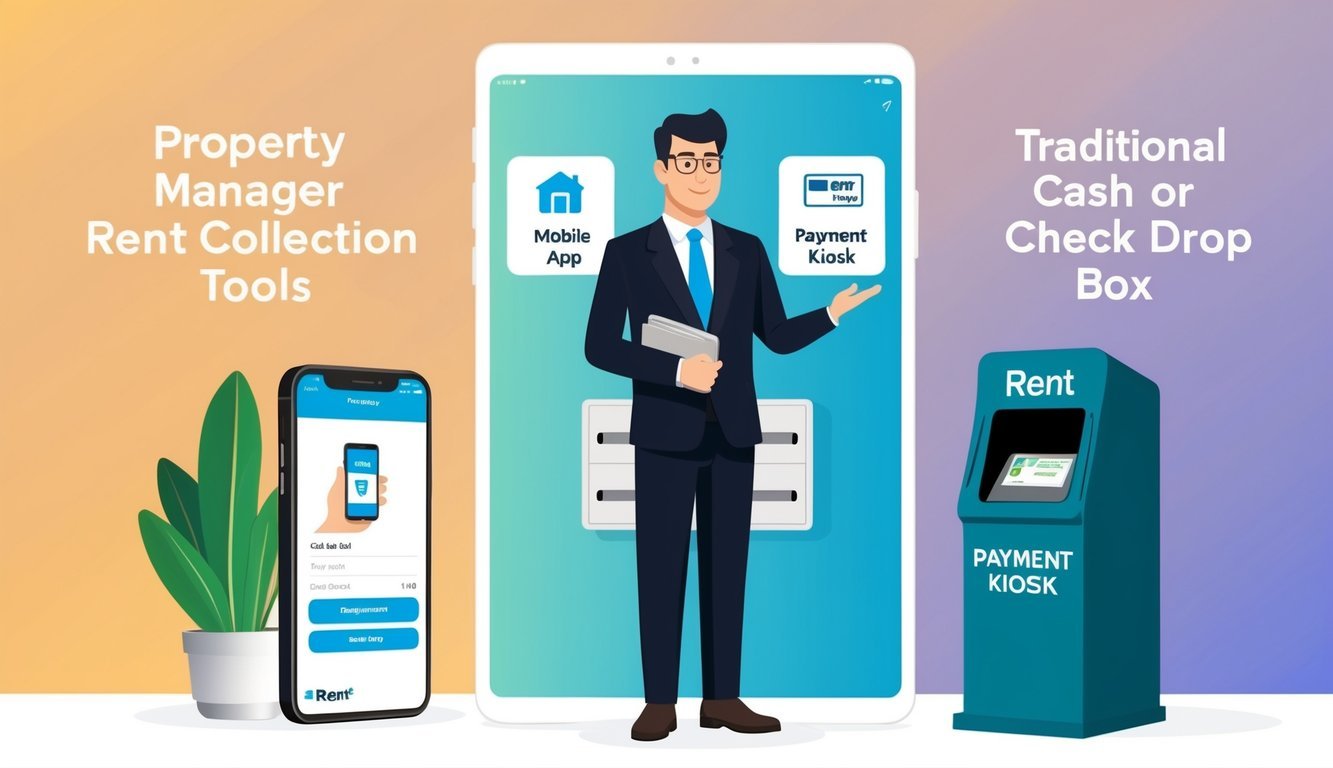
Avail offers a range of features tailored for property managers seeking efficient rent collection.
By utilizing Avail, you can streamline the rental process, from advertising to lease agreements.
This platform is designed to accommodate the diverse needs of landlords and property managers.
One of the most notable features is the ability to create a rental listing with ease.
Your listing can be shared across multiple top rental sites, increasing exposure and potential tenant inquiries.
This broad reach can help you fill vacancies faster.
Online rent collection is another key component, allowing you to receive payments securely.
Tenants can pay their rent through a straightforward digital interface, reducing the chances of late payments.
Automatic reminders and payment tracking further enhance this system.
Avail also assists with screening prospective tenants by offering tools for background and credit checks.
These features help ensure you select reliable renters, safeguarding your investment.
Managing tenants becomes more manageable with comprehensive records accessible through the platform.
For detailed tracking of income and expenses, Avail provides tools that simplify the financial management aspect of property ownership.
This allows you to focus on strategic planning rather than administrative tasks.
Explore more about Avail’s offerings on their features page.
Understanding Rent Collection
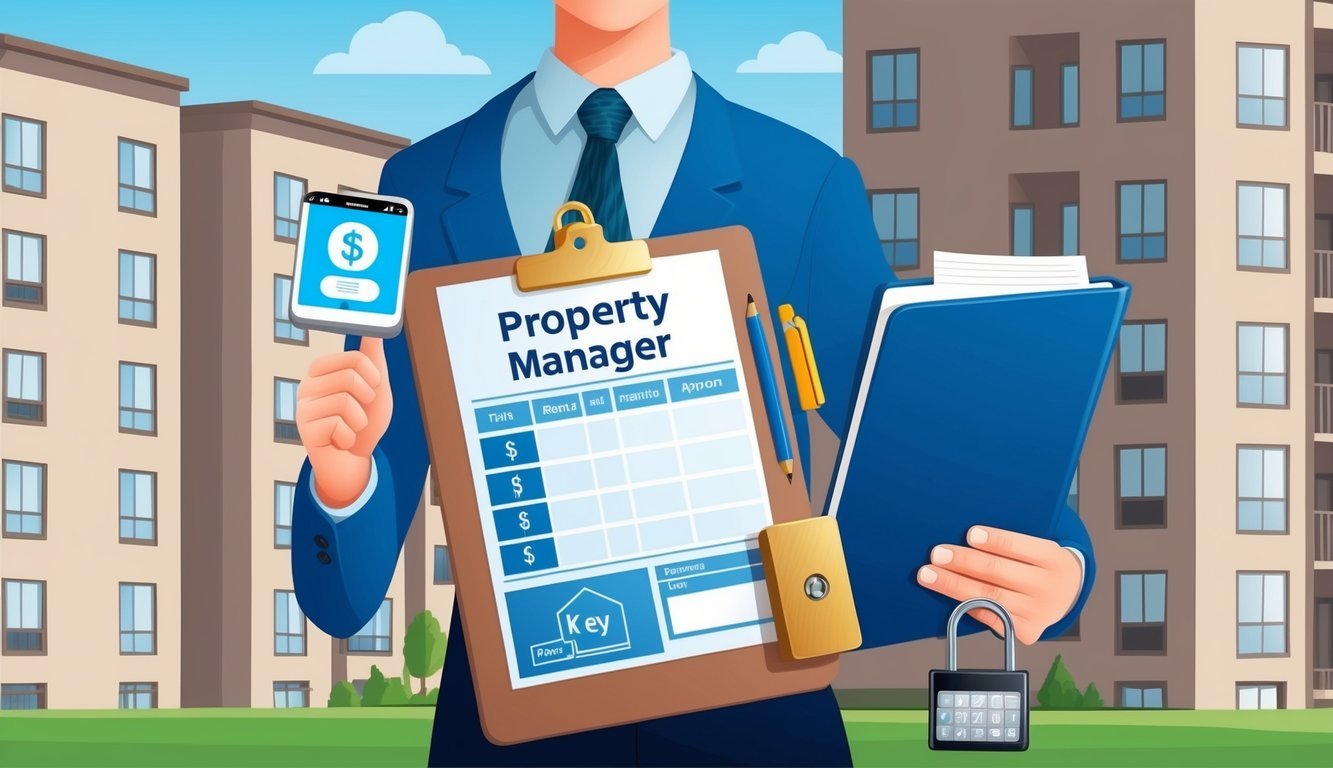
Rent collection is a critical part of property management that ensures a steady income from rental properties.
Maintaining efficiency in collecting rent is essential for profitability and tenant relationships.
Importance of Timely Payments
Timely rent payments are essential for maintaining cash flow in rental properties.
Late or missed payments can lead to financial instability, affecting your ability to cover expenses such as maintenance, mortgage, and utilities.
Moreover, consistent payment patterns help in establishing credibility with financial institutions, which can be beneficial for securing loans or financing.
Prompt payments also improve landlord-tenant relationships by fostering trust and reliability.
Implementing reminders and offering multiple payment methods like direct deposit can encourage tenants to pay on time, reducing the risk of late fees and conflicts.
Challenges in Rent Collection
Rent collection can present various challenges, including late payments and disputes.
Tenants may face financial hardships or forget payment deadlines, leading to delays.
Additionally, managing payments manually can increase the administrative burden on landlords, resulting in errors and inefficiencies.
Software solutions like rent collection platforms offer tools to automate and streamline this process, reducing the likelihood of human error.
Legal and regulatory compliance also poses challenges, as landlords must adhere to local laws and tenant rights.
Being proactive in setting clear lease terms and having a systematic approach for handling issues can mitigate some of these challenges, maintaining smooth property operations.
Legal Considerations for Property Managers
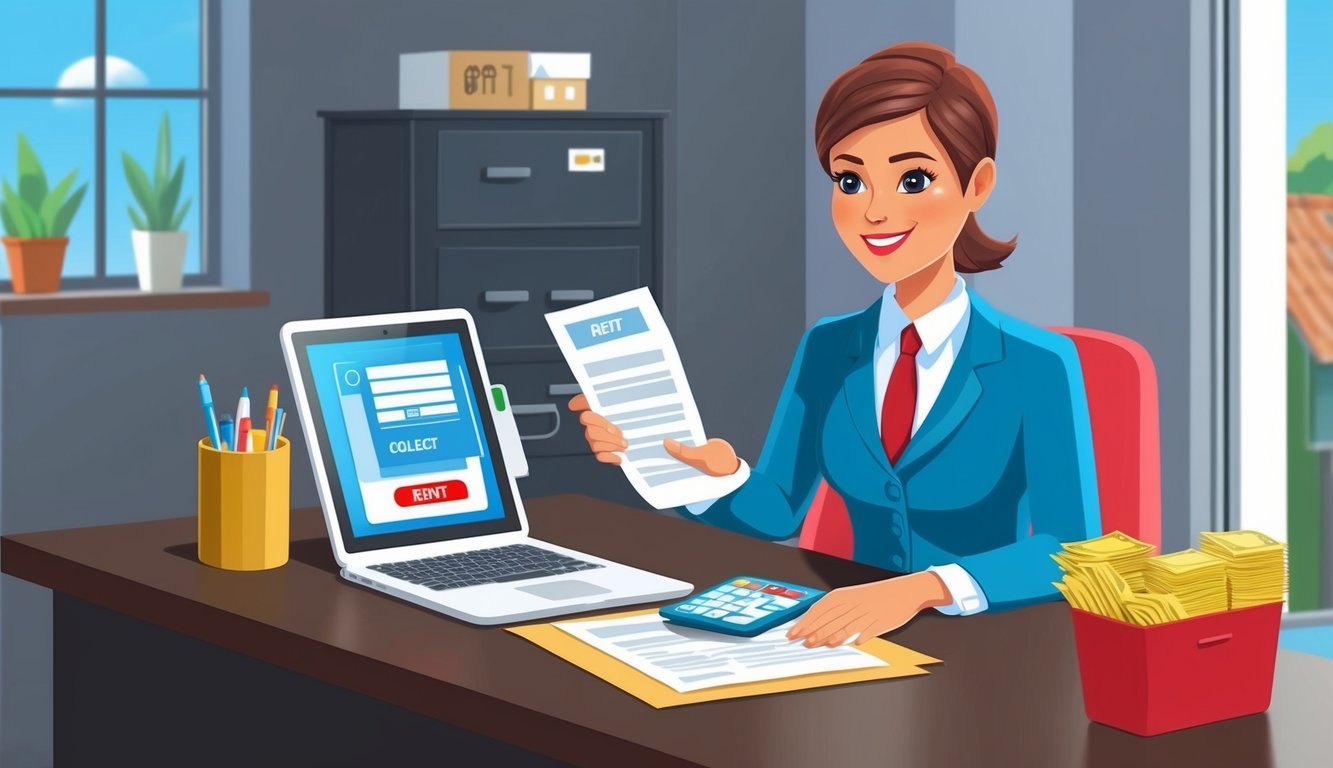
Property managers must navigate a complex legal environment to effectively manage their properties and fulfill their responsibilities.
Key areas include drafting tenant agreements and ensuring compliance with local laws.
Tenant Agreements
Tenant agreements serve as the cornerstone of the relationship between you and your tenants.
These contracts outline essential terms such as rent amounts, payment schedules, and rules for property use.
It is crucial to ensure that your agreements are legally sound and adhere to state and federal regulations.
Including clauses on maintenance responsibilities, termination conditions, and security deposits can protect both parties and minimize disputes.
Drafting clear and precise language is essential.
Ambiguities in agreements can lead to misunderstandings or legal challenges.
Regularly updating these agreements to reflect changing laws and conditions can safeguard your interests.
Consider consulting with legal professionals to draft or review tenant agreements, ensuring they are comprehensive and compliant.
Compliance with Local Laws
Adhering to local regulations is essential for successful property management.
This includes understanding rent control ordinances, eviction procedures, and safety requirements.
Failing to comply with local laws can result in fines, legal disputes, or loss of property management privileges.
Staying informed about legislative changes and updating practices accordingly is vital.
Utilizing property management software can assist in maintaining compliance.
These tools can help you track regulatory changes, ensure lease agreements are updated, and facilitate smooth rent collection.
Implementing proactive measures to manage legal compliance will reduce risks and enhance the effectiveness of your management approach.
Consulting local legal resources or experts can provide additional guidance tailored to your specific needs.
Best Practices for Effective Rent Collection
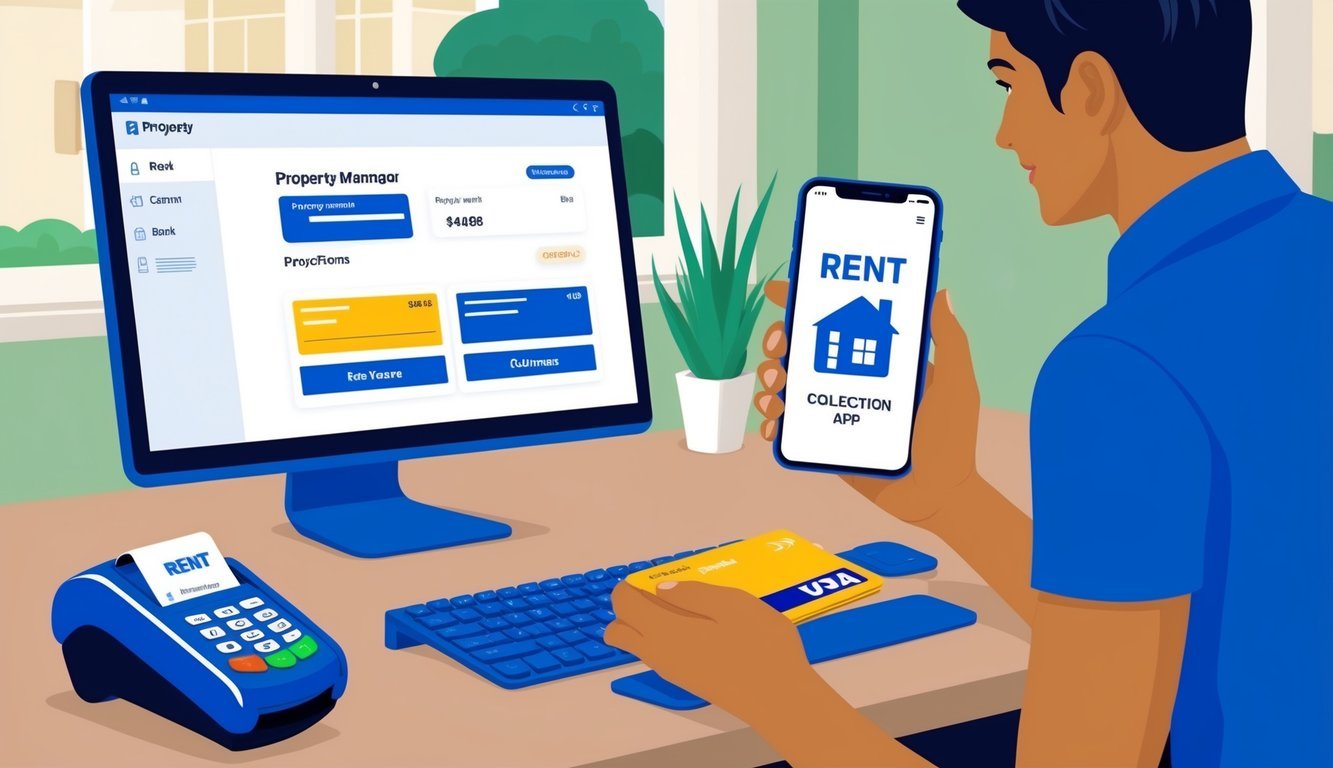
To ensure a smooth rent collection process, it’s crucial to establish clear policies and maintain open lines of communication with your tenants.
These strategies foster trust and reduce misunderstandings, ultimately leading to timely payments and a positive landlord-tenant relationship.
Setting Clear Policies
Implementing well-defined rent collection policies is essential for consistency and transparency.
Clearly outline payment methods accepted, due dates, and any applicable late fees.
By detailing these aspects in the lease agreement, you minimize confusion and set expectations from the start.
Document procedures for addressing missed or late payments.
This includes any grace periods and steps for potential eviction proceedings.
Transparency in these policies can help mitigate disputes and encourage timely payments.
Offer multiple digital payment options like ACH, credit, and debit cards.
This approach ensures convenience for tenants and enhances security and tracking.
Utilizing property management software can further streamline the collection process.
Regular Communication with Tenants
Maintaining open and regular communication with tenants is key to cultivating a positive relationship.
Send reminders before rent is due, and promptly address any tenant inquiries or concerns regarding rent collection.
Use a mix of communication channels, such as emails, texts, or phone calls, to reach tenants effectively.
Regular updates on any changes to policies or payment methods keep everyone informed and reduce miscommunication.
Encourage tenants to report any financial difficulties as soon as possible.
Early discussions about payment plans or temporary arrangements can prevent late payments and foster goodwill.
This proactive approach ensures understanding and cooperation, which benefits both parties.
Frequently Asked Questions
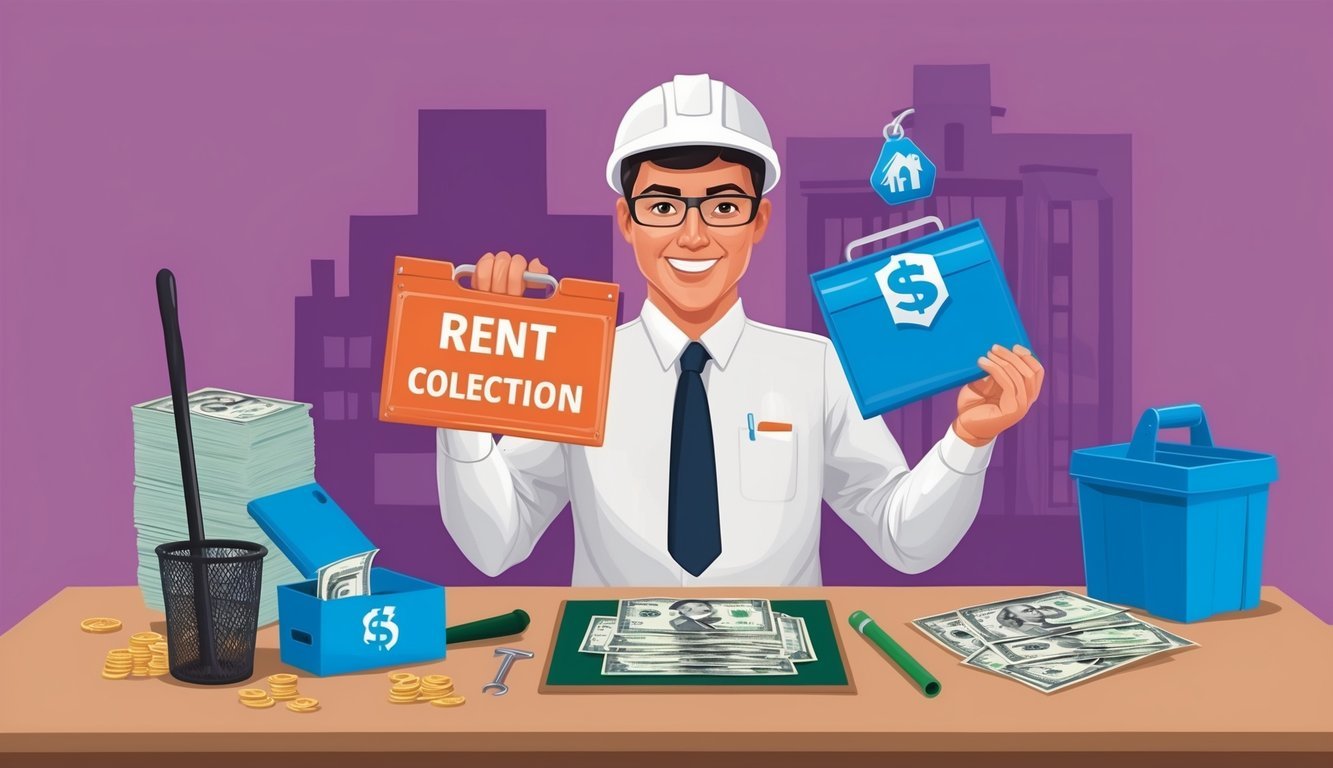
Property managers often search for tools that make rent collection seamless and integrate well with existing systems.
Understanding the features and benefits of these tools can help you manage your properties more efficiently.
What features should property managers look for in rent collection tools?
Look for tools that offer automated payment reminders, secure payment processing, and easy integration with accounting software.
These features streamline the process, reduce late payments, and ensure accurate financial records.
What are some of the top-rated rent collection apps available for landlords?
Among the top-rated options are Buildium for comprehensive features, TenantCloud with excellent customer support, and Avail for its user-friendly interface and affordability.
How do free rent collection software options compare to paid services?
Free options often provide basic functionalities such as ACH payments but may lack advanced features found in paid services.
Paid versions typically include enhanced customer support, additional integration capabilities, and more robust reporting tools.
What are the advantages of using specialized rent collection software over traditional payment methods?
Specialized software provides convenience, automates reminders, and offers multiple payment options, which traditional methods cannot.
This reduces manual work, minimizes errors, and enhances tenant satisfaction.
Can rent collection apps integrate with other property management systems for streamlined operations?
Yes, many rent collection tools are designed to integrate with other property management software.
This capability allows you to manage leases, track accounting, and handle maintenance requests all within a single platform.
How can property managers efficiently handle rent collection for multiple rental units?
Property managers can efficiently handle rent collection by utilizing software that supports unlimited units without extra fees.
Tools like Baselane offer scalability and allow you to manage multiple properties with ease.
They ensure you have access to all necessary data in one place.

